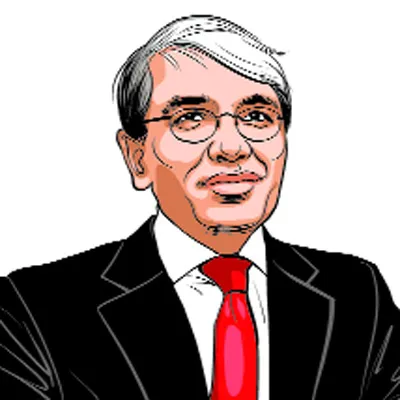Opinion Backseat drivers
There are seven of them,hampering policy-making in Delhi
There are seven of them,hampering policy-making in Delhi
The Renaissance physician Paracelsus knew that postmortems have a certainty that prescriptions never will. Socrates said that a slave who has three masters is free. Combining the wisdom of Socrates and Paracelsus makes it clear that the quality of future decision-making does not improve from reviewing every past decision by multiple,independent evaluators who know what finally happened. More importantly,replacing the poor accountability of New Delhis past policymaking with todays hindsight-based,real-time multiple backseat drivers is dysfunctional because the easiest way to make no bad decisions is to make no decisions.
Today,policymaking in Delhi has seven backseat drivers the judiciary,the Comptroller and Auditor General (CAG),the Central Vigilance Commissioner (CVC),the CBI,the National Advisory Council (NAC),non-government activists,and the media. Each of them is trying to outdo and out-scream the other in second-guessing every policy decision of the past with the benefit of knowing what finally happened. However,fraud,incompetence and plans not working to plan are three different scenarios.
Decision-making involves judgement. And there are three important points about judgement that our seven backseat drivers are forgetting. First,good judgement is built over a career of decision-making because it comes from experience,and experience comes from making bad judgements. Second,most judgements are made with imperfect or incomplete information. If decisions must be made only when you have perfect information or an outcome guarantee,no decisions will be made. As Clint Eastwood says in The Rookie,If you want a guarantee,buy a toaster. Third,the exercise of judgement by decision-makers requires them to believe that the merciless gaze of posterity will be fair. History will and must judge,but if decision-makers conclude that every decision they make will be analysed with distrust an answer looking for a question then no judgement will be exercised. To paraphrase Gandhijis quip about Katherine Mayo,if you behave like you are the inspector of the loo,what do you expect to find?
Our civil services structure has three birth defects: weak or non-existent punishments for sins of omission,poor rewards for successful acts of commission,and disproportionate retribution for acts of commission that went wrong. But our seven backseat drivers are compounding these poor incentives by making politicians unwilling or unable to provide the bureaucracy with the political cover or courage to make calls. Delhi today is like Baghdad after Saddam Hussein every man for himself. This is where we enter dangerous territory because Indias reforms are far from complete. In fact,the low-hanging fruit of reform has already been picked,and the next phase requires imagination,courage and judgement. We dont need more cooks in the kitchen,but new recipes. And new recipes for uninterrupted power supply,apprenticeships,employment exchanges,vocational universities,teacher training and road-building dont have precedents,guarantees or perfect information. So its time for the seven backseat drivers to consider the consequences of their actions because their honourable intentions are creating an atmosphere of witch-hunting and suspicion around any discretion. And ending discretion is not different from murdering judgement,boldness and imagination.
The considerable energy of these backseat drivers would yield higher returns if they moved away from sins of commission to sins of omission delay and inaction. This could begin by championing administrative reforms of the civil services. Vallabhbhai Patels wonderful vision of Secretary to the Government,rather than Secretary to the Minister,is being sabotaged by the insanity in the appointment process that requires potential secretaries to find ministerial sponsors. We need to revert to Pandit Nehrus convention of rarely grouping together ministers and civil servants from the same state/ cadre,and to restore real authority to the ACC (Appointments Committee of the Cabinet) in mandatory postings. Finally,as a democracy,we must struggle harder to figure out how to effectively create accountability by Parliament as well as to Parliament.
The crusade against corruption has been useful but the best way to destroy a nation is to make everybody distrust each other. The wonderful movie Good Night,and Good Luck chronicled journalist Edward Murrows stand against US Senator McCarthys vicious and unsubstantiated 1950s witch-hunt against communists. At a time when few in the press were willing to speak up,for fear of being targeted by McCarthy,Murrow said,It is not sworn testimony and this is trial by rumour,hearsay,gossip,slander,and innuendo. But we will not walk in fear of one another. Its unfair to compare the backseat drivers to McCarthy,but it is time for them to change gear. From tearing down things to building them. From doing postmortems to writing prescriptions because the cumulative consequence of their good intentions is a risk aversion to bold policy decisions that India cannot afford. Or,more accurately,Indias poor cannot afford.
The writer is chairman,Teamlease Services
express@expressindia.com


